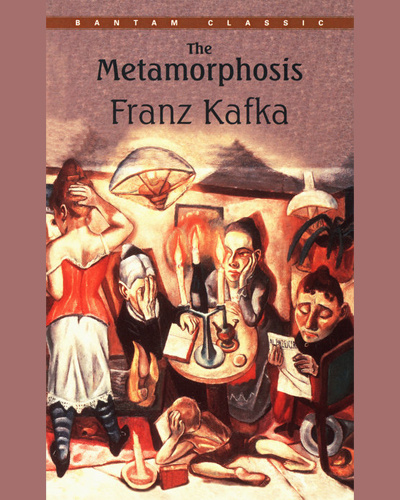
| Language | From $0.00 |
| Release Date | January 1, 1915 |
| Genre | Classics |
| Author | Franz Kafka |
| File Size | Bantam Classics |
| Rating | (4.11) |
The Metamorphosis tells the story of Gregor Samsa, a traveling salesman who wakes up one day to find himself transformed into a giant insect.
Gregor’s transformation affects not only him but also his family, who must now come to terms with their new reality and find a way to survive.
The family takes in boarders to help make ends meet, but their presence further complicates the Samsa family’s already difficult situation.
One of the main themes of The Metamorphosis is alienation, as Gregor becomes increasingly isolated from his family and society due to his transformation.
The novella explores the concept of the monstrous, both in the physical transformation of Gregor and in the reactions of those around him.
The absurdity of Gregor’s situation serves to highlight the irrationality of the world and the human condition.
The Metamorphosis examines the relationship between authority and guilt, as Gregor struggles with the expectations placed upon him by his family and society.
The novella also deals with the theme of the body, as Gregor’s transformation leads him to confront the limitations and vulnerabilities of his new form.
The Metamorphosis is a prime example of Kafka’s unique style, characterized by a blend of realism and the fantastical, as well as a sense of impending doom.
Kafka employs irony throughout the novella, often using it to underscore the absurdity of Gregor’s situation and to highlight the disconnect between appearance and reality.
The story is told primarily from Gregor’s point of view, allowing the reader to experience his thoughts and emotions firsthand.
Upon its publication, The Metamorphosis received mixed reviews, with some critics expressing confusion or disgust at the story’s bizarre premise.
Today, the novella is widely regarded as a masterpiece of modernist literature and is frequently analyzed for its exploration of themes such as alienation, existentialism, and the human condition.
The Metamorphosis has had a lasting impact on literature, inspiring countless authors and works, and has also been adapted into various forms of media, including film, theatre, and graphic novels.
In conclusion, The Metamorphosis is a powerful and thought-provoking work that delves deep into the human experience, exploring themes of alienation, the monstrous, the absurd, authority, and the body. Through its unique blend of realism and the fantastical, Kafka’s novella continues to captivate readers and challenge our understanding of the world around us. Its lasting impact on literature and popular culture is a testament to its enduring relevance and the timeless nature of its themes.